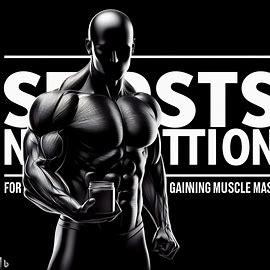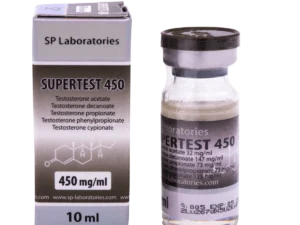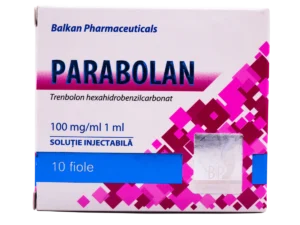
Sports Nutrition for Gaining Muscle Mass
In the realm of sports and fitness, building muscle mass is a common goal for many athletes and fitness enthusiasts. Whether you are a professional bodybuilder, an aspiring athlete, or simply someone looking to enhance their physique, understanding the importance of sports nutrition in achieving optimal muscle growth is paramount.
Muscle growth is a complex process that requires a combination of resistance training, adequate rest, and proper nutrition. While exercise stimulates muscle growth, nutrition plays a crucial role in providing the necessary building blocks for muscle repair and growth. This is where sports nutrition comes into play.
Sports nutrition refers to the specific dietary strategies and supplements designed to support athletic performance and enhance muscle growth. It involves a careful balance of macronutrients (proteins, carbohydrates, and fats) and micronutrients (vitamins and minerals) to fuel the body and promote muscle hypertrophy.
Protein, often hailed as the king of nutrients for muscle growth, plays a central role in sports nutrition. It is essential for repairing and rebuilding muscle tissue damaged during exercise. Adequate protein intake helps to stimulate muscle protein synthesis, the process by which new muscle proteins are produced. Sources of high-quality protein include lean meats, poultry, fish, eggs, dairy products, and plant-based options like legumes and tofu.
Carbohydrates are another crucial component of sports nutrition for muscle gain. They serve as the primary fuel source for intense workouts and provide the energy needed to support muscle growth. Complex carbohydrates, such as whole grains, fruits, and vegetables, are preferred over simple sugars as they provide sustained energy and essential nutrients.
Fats, often misunderstood and wrongly vilified, are also important for muscle growth. Healthy fats, such as those found in nuts, seeds, avocados, and olive oil, provide essential fatty acids that support hormone production and aid in nutrient absorption.
In addition to macronutrients, proper hydration is essential for muscle growth. Water is involved in numerous physiological processes, including muscle contraction and nutrient transport. Dehydration can impair muscle performance and hinder muscle recovery. It is important to drink adequate amounts of water before, during, and after exercise to stay properly hydrated.
Supplementation can also play a role in sports nutrition for muscle gain. Protein powders, creatine, and branched-chain amino acids (BCAAs) are commonly used supplements that can support muscle growth and enhance exercise performance. However, it is important to note that supplements should not replace a well-balanced diet but rather complement it.
In conclusion, sports nutrition is a vital component in the pursuit of gaining muscle mass. By understanding the importance of macronutrients, proper hydration, and supplementation, athletes and fitness enthusiasts can optimize their nutrition to support muscle growth and achieve their desired physique. With the right nutritional strategies in place, combined with consistent training and adequate rest, individuals can unlock their full potential and reach their muscle-building goals.
The Role of Protein in Muscle Growth
Protein is an essential nutrient for muscle growth and repair. When we engage in resistance training or intense exercise, our muscle fibers undergo microscopic damage. Protein provides the building blocks necessary for repairing and rebuilding these damaged muscle fibers, resulting in muscle growth and hypertrophy.
Recommended Protein Intake
The recommended protein intake for individuals looking to gain muscle mass is generally higher than the average sedentary person. It is recommended to consume around 1.2-2 grams of protein per kilogram of body weight per day. This ensures an adequate supply of amino acids, the building blocks of protein, to support muscle protein synthesis.
Sources of Protein
There are various sources of protein that can be incorporated into a muscle-building diet. Animal-based sources such as lean meats, poultry, fish, and dairy products are excellent choices due to their high biological value and complete amino acid profile. Plant-based sources such as legumes, tofu, tempeh, and quinoa are also rich in protein and can be included in a vegetarian or vegan diet.
The Importance of Carbohydrates
Carbohydrates are the body’s primary source of energy, especially during intense workouts. They provide the fuel necessary to power through workouts and support muscle growth. Complex carbohydrates, such as whole grains, fruits, and vegetables, are preferred over simple sugars as they provide sustained energy and essential nutrients.
The Role of Fats
Contrary to popular belief, fats are an essential component of a muscle-building diet. Healthy fats, such as those found in nuts, seeds, avocados, and olive oil, provide essential fatty acids that support hormone production and aid in nutrient absorption. Including a moderate amount of healthy fats in your diet can contribute to overall muscle growth and development.
The Importance of Hydration
Proper hydration is often overlooked but is crucial for optimal muscle growth and performance. Water plays a vital role in muscle contraction, nutrient transport, and overall cellular function. Dehydration can lead to decreased muscle strength, endurance, and recovery. It is important to drink water before, during, and after exercise to maintain proper hydration levels.
The Role of Supplements
Supplements can be a helpful addition to a well-balanced diet for individuals looking to gain muscle mass. Protein powders, such as whey or plant-based options, can provide a convenient and easily digestible source of protein. Creatine supplementation has also been shown to enhance muscle strength and power. Branched-chain amino acids (BCAAs) may aid in muscle recovery and reduce muscle soreness. However, it is important to remember that supplements should not replace whole foods but rather complement a nutritious diet.
Conclusions
In conclusion, sports nutrition plays a crucial role in gaining muscle mass. Adequate protein intake, along with a balanced diet rich in carbohydrates and healthy fats, provides the necessary nutrients for muscle growth and repair. Hydration is essential for optimal muscle function, and supplements can be used as a convenient addition to support muscle development. By following proper sports nutrition guidelines and combining it with regular resistance training, individuals can maximize their muscle-building potential and achieve their desired physique.
Practical Recommendations for Gaining Muscle Mass
1. Prioritize Protein-Rich Foods
Ensure that each meal includes a good source of protein to support muscle growth. Incorporate lean meats, poultry, fish, eggs, dairy products, or plant-based options like legumes and tofu into your diet. Aim for a consistent protein intake throughout the day to optimize muscle protein synthesis.
2. Plan Your Carbohydrate Intake
Carbohydrates are essential for providing energy during workouts and supporting muscle growth. Opt for complex carbohydrates such as whole grains, fruits, and vegetables. Prioritize carbohydrates around your workout, consuming them before and after to fuel your training and aid in recovery.
3. Include Healthy Fats
Don’t shy away from healthy fats in your diet. Incorporate sources like nuts, seeds, avocados, and olive oil to provide essential fatty acids that support muscle growth and overall health. Remember to consume fats in moderation as they are calorie-dense.
4. Stay Hydrated
Hydration is crucial for optimal muscle function and recovery. Aim to drink water consistently throughout the day, especially before, during, and after exercise. Monitor your urine color as a general indicator of hydration; pale yellow is ideal.
5. Consider Supplementation
Supplements can be beneficial in supporting muscle growth, but they should not replace a well-balanced diet. Consider incorporating protein powders, creatine, or BCAAs into your routine if needed. Consult with a healthcare professional or registered dietitian to determine the appropriate types and dosages for your specific needs.
6. Track Your Progress
Keep a record of your workouts, nutrition, and progress to assess what strategies work best for you. Monitor changes in strength, body composition, and overall performance to make necessary adjustments to your nutrition and training regimen.
7. Get Adequate Rest and Recovery
Remember that muscle growth occurs during rest and recovery periods. Ensure you are getting enough quality sleep and allowing for sufficient rest days between intense workouts. This allows your muscles to repair and grow, preventing overtraining and promoting optimal muscle development.
8. Consult with a Professional
If you have specific goals or unique dietary needs, consider consulting with a registered dietitian or sports nutritionist. They can provide personalized recommendations and guidance tailored to your individual requirements, helping you optimize your nutrition for muscle gain.
By implementing these practical recommendations, you can enhance your sports nutrition approach and maximize your potential for gaining muscle mass. Remember that consistency, patience, and a well-rounded approach to nutrition and training are key to achieving your desired results.






